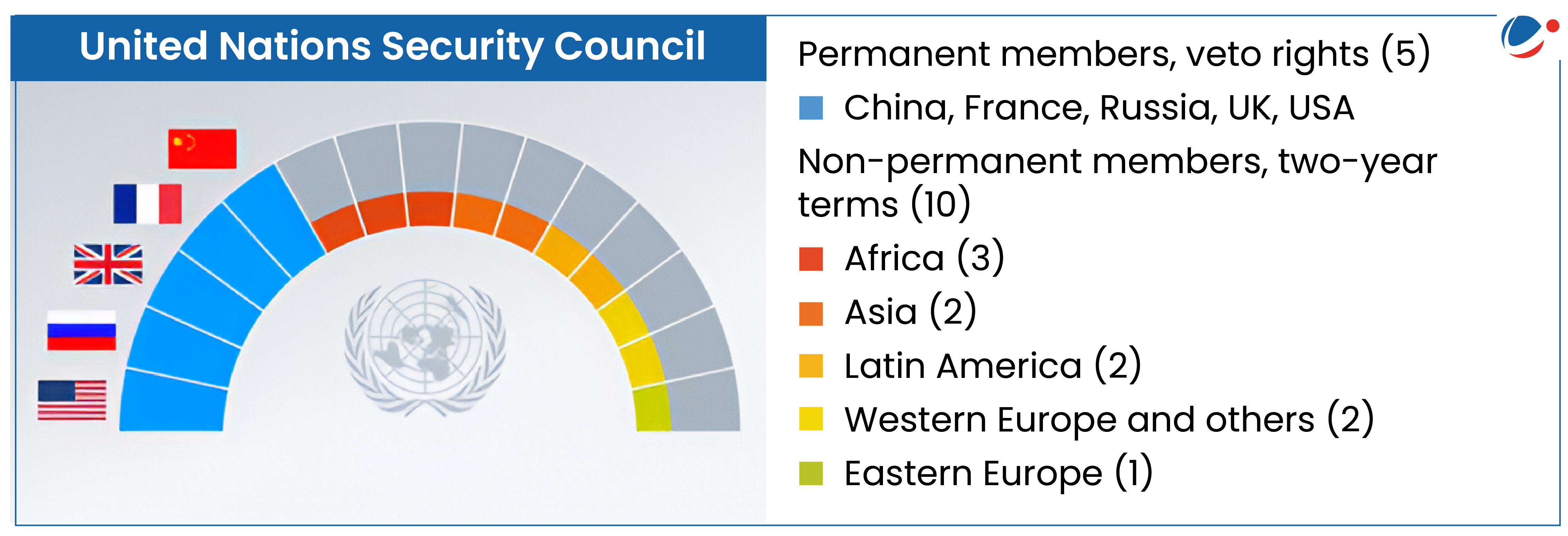Recently, US, France and UK have also supported for India’s bid to become a permanent member of UNSC.
- Reforming UNSC would require amendments in UN Charter.
- Amendment would come into force for all Members of UN when it is adopted by a vote of two thirds of members of General Assembly and ratified by two thirds of Members of UN, including all permanent members of UNSC.
About UNSC
- Established by UN Charter in 1945, UNSC is one of the six principal organs of UN with primary responsibility for maintaining international peace and security.
- UNSC is composed of 15 members (refer infographic).
- UNSC has power to make binding decisions that member states are required to implement under Charter.

Factors supporting India’s Permanent Membership
- Leader of Developing Countries. E.g. Global South
- Rapid Economic Growth (5th largest economy in world).
- India is most populous country in world.
- One of the largest contributors to United Nation Peacekeeping Forces.
Hurdles in India’s Permanent Candidature
- China’s Opposition: All permanent members of UNSC have supported India’s candidature except China.
- Opposition from Various Groups: E.g. Uniting for Consensus/Coffee Club opposes expansion of permanent seats in UNSC.
- Self-interest of Council’s current permanent members.





